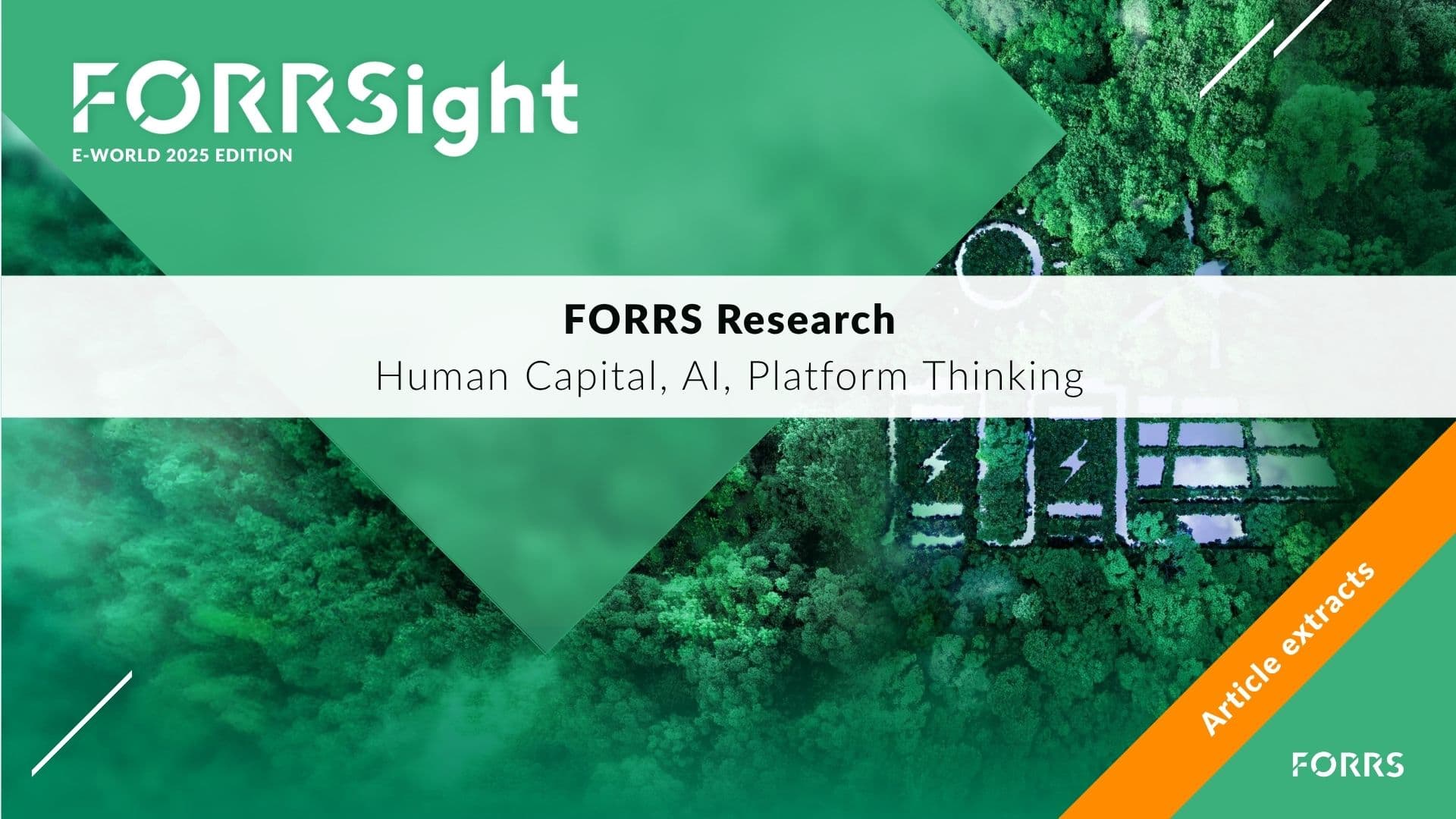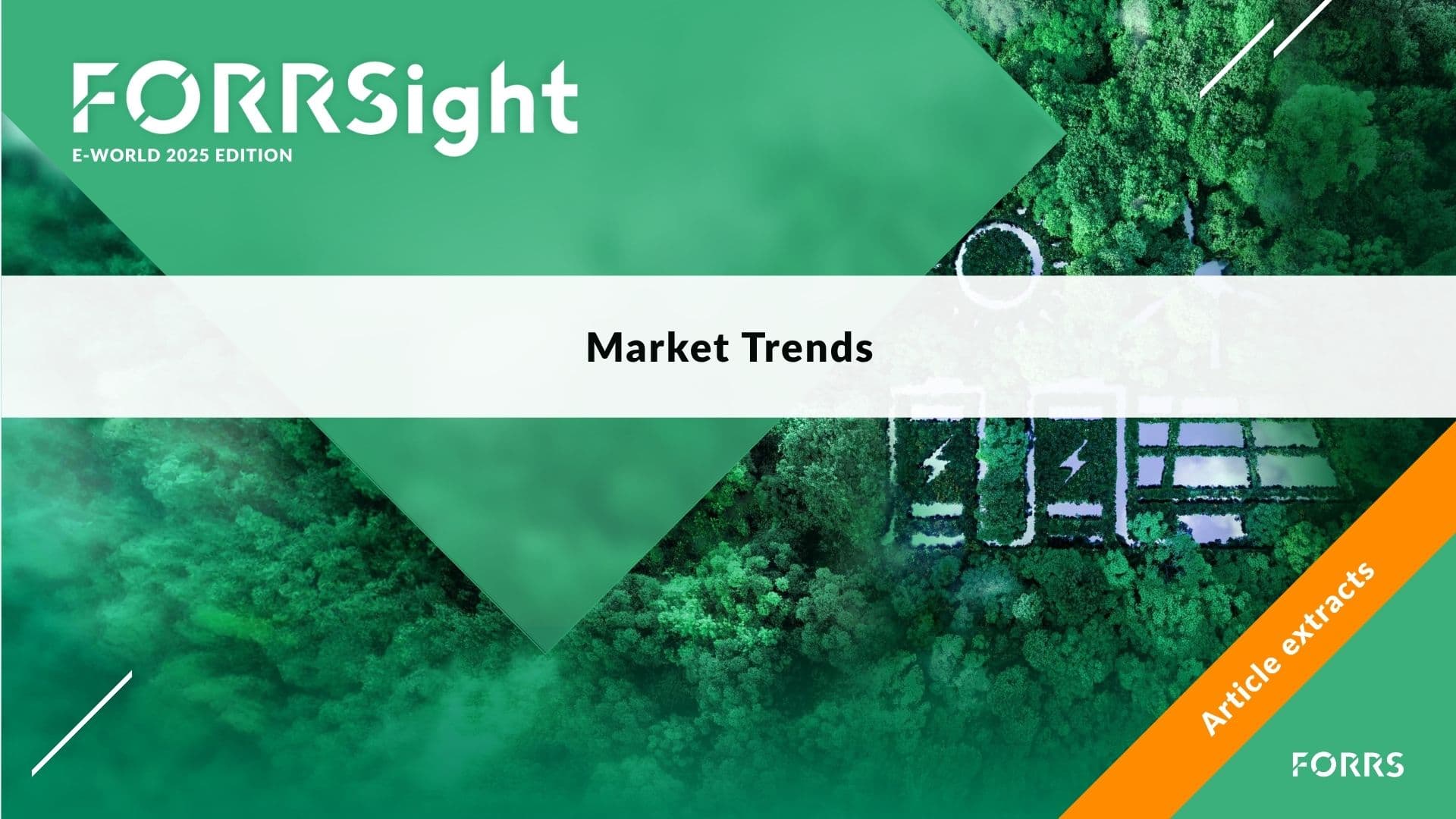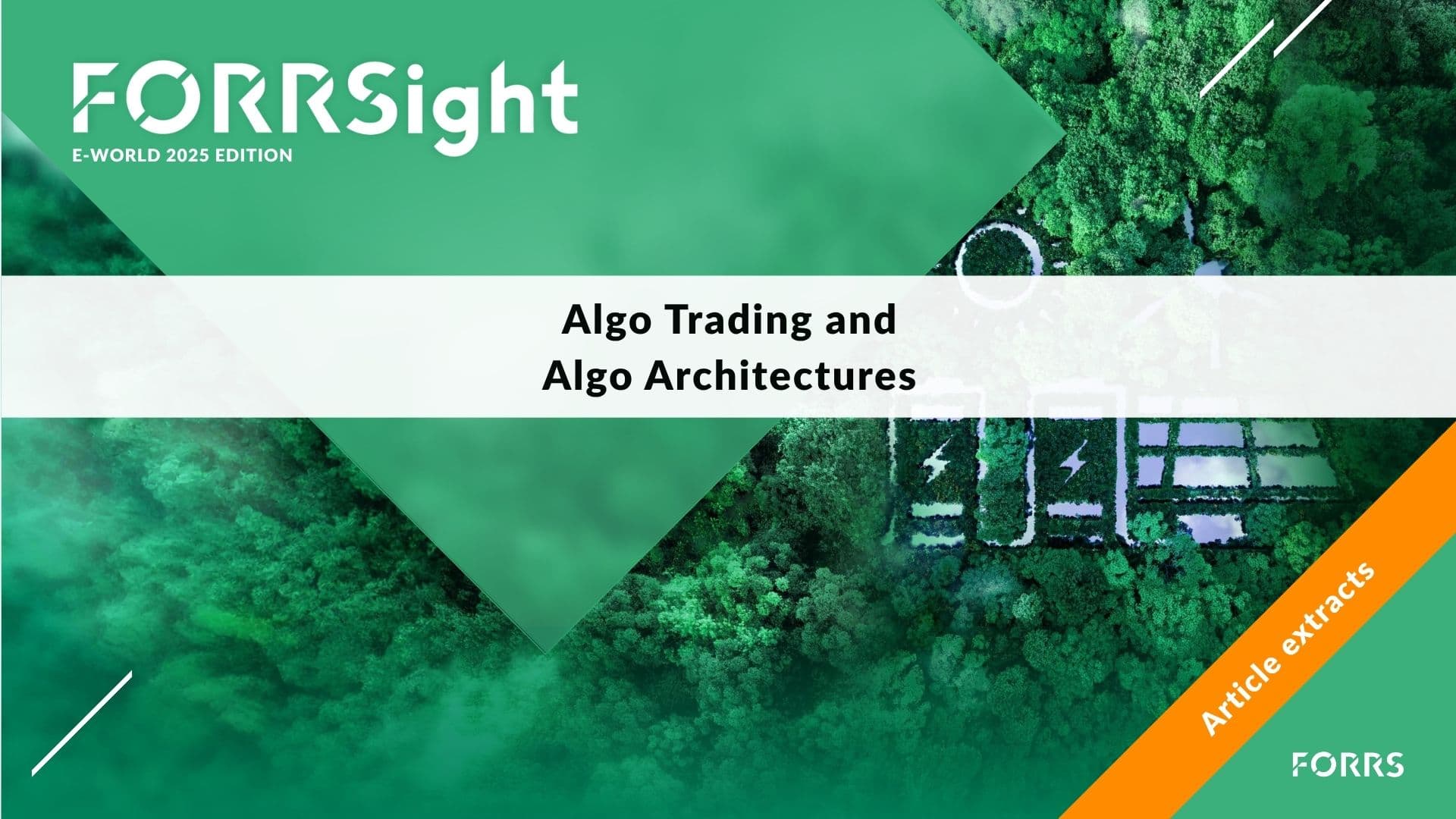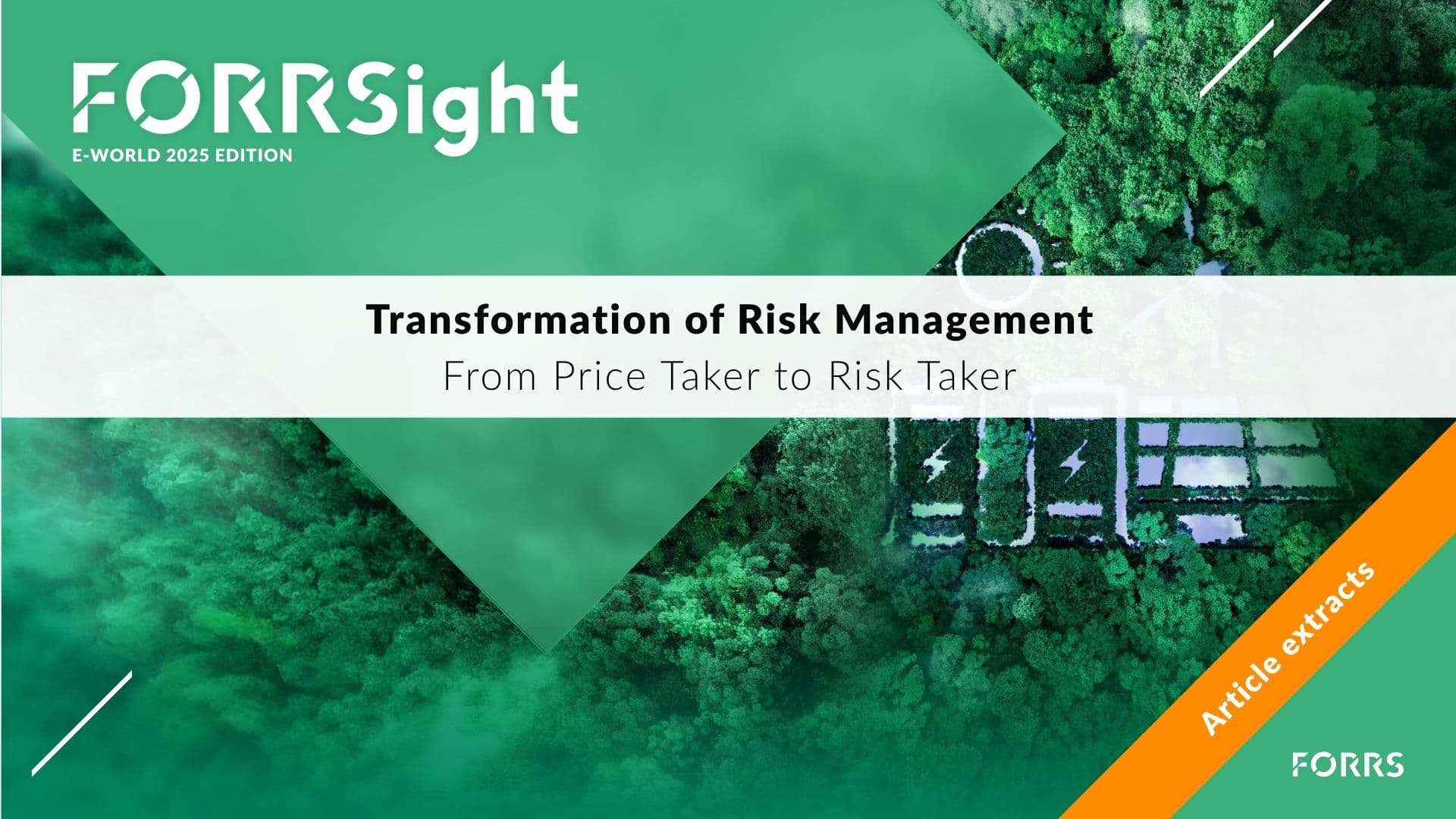15.07.2025 / 08:30
FORRS Research
Energy Markets

The fast-changing energy market demands constant adaptation and innovation. By combining the expertise of academia and industry, we are analyzing the latest trends and developments, which lead to innovative approaches and solutions.

The Need for Innovation-Friendly Regulations and Investment Security
Germany aims to create a competitive hydrogen market by 2030. This requires a clear political course to ensure planning security and improve the investment climate. To ensure global competitiveness, a coherent funding policy, streamlined approval procedures, and incentive mechanisms, such as binding quotas, are required. The regulatory framework must promote innovation instead of slowing it down.

Collaborative Research: Renewables Forecasting with Federated Learning
The successful implementation of renewable energy relies heavily on precise short-term forecasts of weather-dependent electricity generation. However, market participants often have only small and local databases, limiting the precision of the models developed. Federated learning (FL) holds promise, allowing market participants to collaboratively utilize data from their respective systems for precise model development without exchanging sensitive information. As part of this project, Karlsruhe University of Applied Sciences is researching the use of FL models, together with FORRS and four other partners from the energy industry.

Supporting Renewable Energy Research in South Africa
The Centre for Renewable and Sustainable Energy Studies (CRSES) at Stellenbosch University focuses on renewable and sustainable energy research in Africa. In particular, South Africa has an abundance of renewable energy resources which are essential to addressing the current energy crisis and energy transition. However, successfully integrating renewables into the electricity network requires unique solutions. This project between CRSES and FORRS aims to develop technological solutions that can be implemented in South Africa, while promoting skill development, knowledge exchange, and interdisciplinary collaboration across international borders.

Machine Learning with Uncertainty Quantification for Wind Power Forecasting
In this joint cooperative project between FORRS and Ludwig Maximilian University of Munich, we undertook several research initiatives to leverage machine learning for forecasting wind production in Day-Ahead power markets. Utilizing production data from the industry, we have developed models that enhance the accuracy of power generation predictions, thereby reducing risk when energy companies market their renewable portfolios. By integrating machine learning with parametric techniques, forecasts are being produced that incorporate uncertainty quantification, to facilitate more informed decisions. This endeavor highlights the mutual benefits of aligning academic research with industry requirements, advancing both fields in the process.

Techno-Economic Assessment on Intercontinental Green Hydrogen Transport
The Center for Energy Markets (CEM) at Technical University of Munich advances energy market understanding and supports global decarbonization through research, education, and industry collaboration. Partnering with FORRS, CEM examined the cost components of intercontinental green hydrogen and ammonia transportation, emphasizing the collaboration between Chile and Germany. This research assessed the costs of transporting green hydrogen from Chile to Germany in liquid hydrogen and ammonia forms, considering storage, conversion, and regasification. Sensitivity analyses explored scenarios involving fuel types and carbon taxes. This study combined industry expertise with academic excellence to address the challenges of hydrogen transportation

Unique Climate Risks Require New Approaches
The risks arising from climate change are uniquely global, uniquely long-term, uniquely irreversible, and uniquely uncertain. Because their structure is complex and their consequences go beyond financial losses, climate risks are difficult to price. Clearly, risk that is not adequately quantified is difficult to manage effectively. Thus, we are developing approaches to improve the analysis of climate risks within the usual risk categories (credit, market, etc.). Acknowledging the special character of climate risks, we are investigating measures to increase the resilience of companies and propose ways to implement risk-oriented dialogues on transition plans. In addition, new financial products and structures to help smooth the decarbonization path are being designed and evaluated.

Integrating Renewable Power – International Summer School 2025
Renewable power production is becoming a crucial component of the global sustainable transformation, yet it presents complex challenges requiring interdisciplinary approaches across academia and industry. To address these challenges, Hamburg University, along with Stellenbosch University, Ludwig Maximilian University of Munich, and FORRS, is hosting the “Integrating Renewable Power - International Summer School 2025.” This event will explore key topics and their interplay, including power network stability in electrical engineering, power markets in business, weather, and climate in meteorology, and forecasting via econometrics that include machine learning. FORRS will provide invaluable expertise on power markets and meteorology for energy forecasting.





